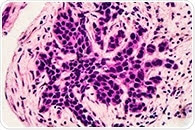| ||||||||||||||||||||||||||||||||||||||||||||||||||||||
| ||||||||||||||||||||||||||||||||||||||||||||||||||||||
| ||||||||||||||||||||||||||||||||||||||||||||||||||||||
| ||||||||||||||||||||||||||||||||||||||||||||||||||||||
| ||||||||||||||||||||||||||||||||||||||||||||||||||||||
| ||||||||||||||||||||||||||||||||||||||||||||||||||||||
lunes, 8 de octubre de 2018
Breast Cancer - Oct 8, 2018 Edition - Medical News | Medical Articles
Medical News | Medical Articles
Suscribirse a:
Enviar comentarios (Atom)








































No hay comentarios:
Publicar un comentario